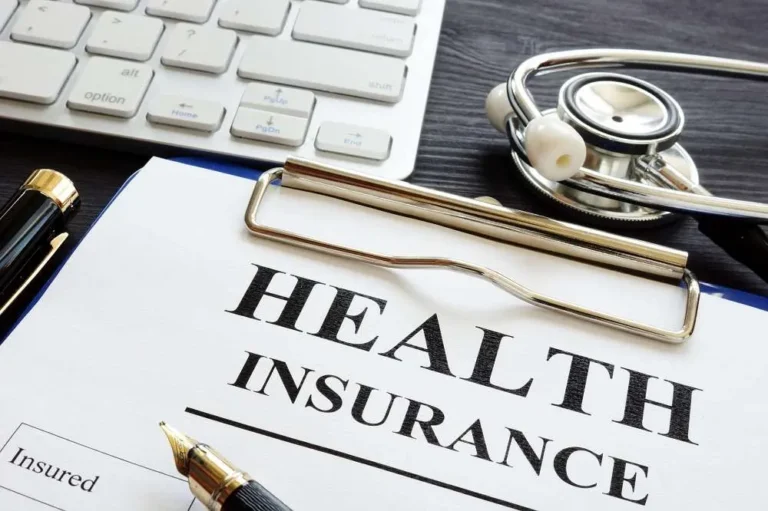The Trump administration may be spurring widespread resignations and instituting mass layoffs among the federal workforce. With thousands of federal workers at risk of losing their jobs, they must consider how a sudden job loss could leave you worried about paying your bills, especially if you have credit card debt and little to no emergency savings.
When you lack the income to pay credit card and other bills tracked on your credit report, your credit score can suffer.
Luckily, you can prevent damage to your credit and manage your payments when you’ve been suddenly forced out of work. You’ll need to get organized, pick up the phone and likely make some sacrifices, but you can find help.
Here’s what to do if you’re concerned about paying your credit card bills and you’re not sure when your next paycheck is coming.
Can You Rely on Severance to Pay Credit Card Bills?
After a layoff, you might receive a severance payment based on your length of employment and how much you earned. A severance payment can act as a financial bridge from one job to another if your unemployment period is short.
Many employers choose to provide severance even though it’s not required. The number of employers offering severance packages to all employees who are let go was 42% in 2023, down from 64% in 2021, according to a recent study conducted by talent mobility company Randstad Enterprise.
If you get severance pay, use that money wisely in the weeks – and possibly months – after you lose your job. You’ll likely need it to cover any monthly credit card and loan payments you can’t defer.
Plus, job hunting isn’t simple. “To find a job as good as the one you had is harder than you think,” says Michael Sullivan, personal financial consultant with Take Charge America, a nonprofit credit counseling and debt management agency based in Phoenix.
How Should You Prioritize Payments?
When you lose income, it can be frustrating to face the reality of cutting out enjoyable parts of your lifestyle. But there’s no better time to take an inventory of your expenses, says Robby Dunn, vice president of counseling at Parachute Credit Counseling of West Seneca, New York.
If you’ve cut unnecessary expenses from your budget, the best-case scenario is that you’d have enough money to make the minimum payments on your credit cards and loans. This could mean carrying credit card debt from month to month with interest, but that is better than missing payments.
If you still can’t make all of your debt payments, you will need to prioritize your secured debt payments over unsecured ones. Secured debts, such as auto loans and mortgages, are different from unsecured debt, such as credit cards, because a lender could seize your collateral if you don’t make timely payments.
“You always have to view secured debt as the No. 1 priority because if you don’t make a mortgage payment, foreclosure proceedings can begin within months,” Dunn says. “It’s more damaging to your credit report and credit score when you miss mortgage payments.”
Also, if you’re a couple of months behind on your auto payments, “The vehicle can be repossessed,” Dunn says. “To get a vehicle out of repossession can cost hundreds or thousands of dollars.”
That doesn’t mean it’s a good idea to miss a credit card payment, though. If you miss even one credit card payment, your credit score could drop by up to 80 points, and the blemish could stay on your credit report for seven years, Dunn says.
Adds Sullivan: “Credit cards are certainly the lowest priority when times are dire. They can hurt your credit, but the cost is less than losing a home or vehicle.”
Can Credit Card Companies Help Consumers Affected by Job Loss?
Consumers must be proactive and contact their card issuers by phone, website or app. “It’s best to address the situation head-on,” Dunn says. “It’s only going to make it worse if you don’t answer the phone (and) don’t tell creditors you lost your job. You have a hardship. They’re not going to know.”
Consumers “need to view themselves as their own advocate, contact their creditors and really state their hardship, their intentions to not fall too far behind, not damage their credit,” Dunn says.
Card issuers may not publicize them, but most have hardship programs to get you through tough financial times. Hardship plans can include provisions that allow interest waivers, lower monthly payments or even defer payments.
You might have to negotiate a bit with customer service, but issuers are prepared to offer relief. Discover, for example, may provide help with fees and late payments, and Citi cardholders could be eligible for forbearance.
Forbearance programs give temporary relief to cardholders and could include reduced interest rates, eliminated fees, postponed payments and decreased minimum monthly payments.
The Consumer Financial Protection Bureau suggests getting any agreements with lenders in writing and routinely checking your credit reports to make sure they are accurate.
And if you can avoid using these types of programs – or the longer you can put it off – the better off you’ll be.
“Consumers should remember that all these concessions will end, and credit card balances will again be due,” Sullivan says. “It is wise to continue making payments if at all possible so as not to accumulate a large debt.”
Do Hardship Plans Have Drawbacks?
Hardship plans have short- and long-term consequences. They can provide immediate relief but hurt your credit, unless arrangements have been made to prevent it, as with deferred payments due to a layoff.
Damage can occur if your credit report shows your debt is “no longer being paid as agreed,” Sullivan says.
A hardship plan can have long-term effects on your credit report, credit score and credit access. “If you call the credit card company and say you’re having trouble making the payments, they are likely to take steps then to restrict your credit,” Sullivan says.
The credit card company may cut your credit limit to reduce its risk of losses.
But lowering your limit can increase your credit utilization ratio, or the amount of credit you’re using compared with your credit limit. If your credit utilization ratio is more than about 30%, your credit score may take a hit.
But “if you can’t make payments, you don’t have a lot of choice than to ask for relief,” Sullivan says.
Credit utilization can also be affected if you consolidate debt with a balance transfer credit card or personal loan. “It has a real impact on your credit and the amount of credit you can have,” Sullivan says.
What Are Some Ways to Pay Down Debt When You’re Unemployed?
When you’ve lost income and need to pay credit card bills, some options are better than others. You may want to look at home equity lines of credit, balance transfer credit cards, 401(k) loans or individual retirement account withdrawals.
Here is more about each of these options:
Home equity loan or line of credit. As long as you can manage the payments, a home equity loan may be your best choice for paying down credit card debt. Interest rates are typically lower than rates for personal loans or credit cards.
Balance transfer credit cards. If your credit score is strong, you might qualify for balance transfer credit cards that can buy you time to pay down balances without interest. But watch out for balance transfer fees, and have a plan to pay off the debt before the regular interest rate kicks in.
“It could be just a Band-Aid on the wound as far as temporarily delaying the inevitable, and you may not be able to make more than a minimum payment on the debt,” Dunn says. “But if you need to get by for three to six months, it’s not a terrible way to stay current.”
Retirement funds. This option carries the most risk because you face steep penalties for early IRA or 401(k) withdrawals. This is a very expensive way to borrow money, and you could lose your retirement income, Sullivan says.
“It’s not something people should do lightly – think long and hard before taking from your retirement fund.”
Can Credit Counseling Help if You Can’t Pay Credit Cards?
If you can’t keep up with your bills and need help with budgeting, reviewing debts and expenses, and negotiating with creditors, you may want to use a credit counselor.
A National Foundation for Credit Counseling-certified counselor can even help you develop an emergency budget if you’ve suddenly lost income because of a job loss. During a financial counseling session, “We sit down with a client and do a thorough review of their budget, income and expenses on a monthly basis and review their credit report,” Dunn says.
A counselor may recommend a debt management plan, or DMP, which rolls several bills into one monthly payment and cuts your interest rate as you pay off debt over three to five years. A DMP can ensure the payments you make keep your accounts current and protect your credit rating.














